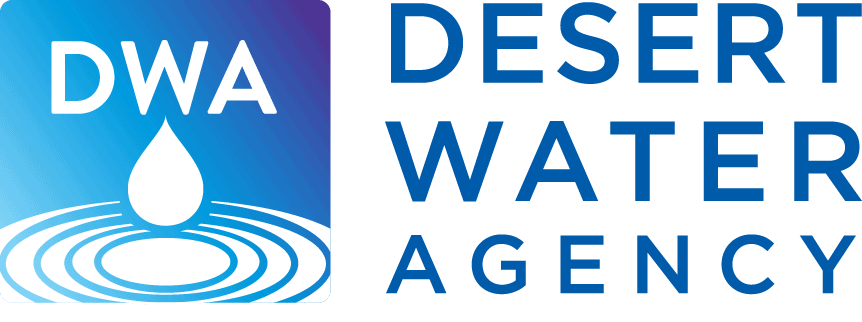Why is hot water coming out even if I turn the cold spigot?
To help, you can run water at your sink for about a minute to clear the water from your home's plumbing, which is probably warmer than the water in our system. You can also put a pitcher in the refrigerator for drinking.
What is eBilling?
Many customers receive their bills via email instead of getting paper copies sent to them each month. That is what we call eBilling. The customers who choose this option get the bill sooner and can still pay any way they’d like, including: autopay, echeck, credit/debit card, paper check or cash.
To sign up for DWA’s eBilling, visit www.myDWA.org.
To learn more about our payment options, click here.
When is my bill due?
Where is my water meter?
Many customers also have a control valve that they can use to shut the water off, if needed.
How do I turn my water off for a repair?

If you do not have a shut-off valve, contact DWA to turn your water off.
If you want to install a new control valve, contact DWA to shut your water off before the installation.
When is my meter read?
I have a high bill. Is my meter broken?
If you sign up for eBilling at myDWA.org you can look at your historical usage to determine if a bill is in line with that same month of previous years. If not, you should check your property for leaks using our step by step instructions or helpful leak check video.
Why am I being charged a $25 late fee?
You may want to consider signing up for autopay to avoid late fees. If you're a customer with a good record of on-time payments, we may be able to waive the fee one time. Please call our office, 760-323-4971.
When am I allowed to water?
The Desert Water Agency (DWA) Board of Directors on Tuesday, June 7, 2022 adopted new water restrictions to comply with State Water Board emergency regulations and help with the statewide drought.
They include no spray/sprinkler irrigation during daylight hours (leak checks are okay – please use a cone). You are allowed to water before sunrise and/or after sunset.
The State also has a prohibition on certain types of properties watering “non-functional turf” – please review the State FAQ.
DWA will still issue citations for water waste observed by our team. Waste includes watering so much it runs off of landscape area, washing down sidewalks/driveways/patios, watering during rain, etc.
For more information, visit our restrictions page.
My water pressure is too low/high. Can DWA change it?
To learn more about pressure in our system, visit our water pressure page. You can also send us an email to find out the normal water pressure in the area where your home is located – it varies widely throughout our service area.
Why does my water look cloudy when it comes out of the tap?
In order to get water to your home, DWA has a pressurized system. The cloudy appearance is simply air bubbles. If you let the water sit for 30-60 seconds, you should see the bubbles rise from the bottom to the top of the glass and dissipate.
Why does sand come out when I turn on hot water?
Why does our water cause white buildup on faucets, glasses, etc?
View our water quality report for more information or the Water Research Center's informational page on water hardness .
How can I apply for a job?
We always accept applications for the following positions:
- Account clerk/telephone operator (office/clerical)
- Meter reader (field customer service)
- Water service worker (construction labor)
DWA keeps applications on file for one year. Applicants will not hear from DWA unless they are submitting for a position that is actively being recruited/is open.
Please do not call our office about job inquiries. Our Human Resources Manager’s email address is HRmanager@dwa.org.
When does DWA's Board of Directors meet?
The Board of Directors holds its regular meetings on the first and third Tuesday of each month at 8 a.m. at 1200 S. Gene Autry Trail, Palm Springs. Click here to view the meeting agendas.
How do I report water waste?
- Use the water waste form on our website
- Call our office at 760-323-4971 during or after business hours
DWA does not share information about the person making the report to those that are reported.
If you see water coming up from the asphalt, please contact DWA as there may be a pipeline leak that we need to repair.
Does DWA offer rebates and incentives?
Yes! Desert Water Agency offers a variety of rebates, incentives and conservation coupons.
Learn more by visiting the following pages:
I have a leak at my house, whose responsibility is it?
DWA cannot refund or reimburse customers for water used inadvertently due to leaks. As a not-for-profit public agency, we have to recover our costs.
Why does Desert Water Agency appear on my property tax bill?
This is because bringing water to the region enhances property value. That amount helps pay for our community's share of the fixed costs on the State Water Project, which helps bring imported water to our region. To learn more click here. To learn more about our imported water, see “Imported Water.”
Do I need to flush my pipes after being gone for a while?
Yes. We urge returning seasonal residents or anyone with plumbing that hasn’t been used for a while to run cold water through their faucets for several minutes before drinking or using for other typical purposes. Water sitting still in pipes for extended periods can build up microbes or mold and become discolored. This clears out water that has been sitting stagnant in pipes on private property and brings in the clean water that is in the public system.

